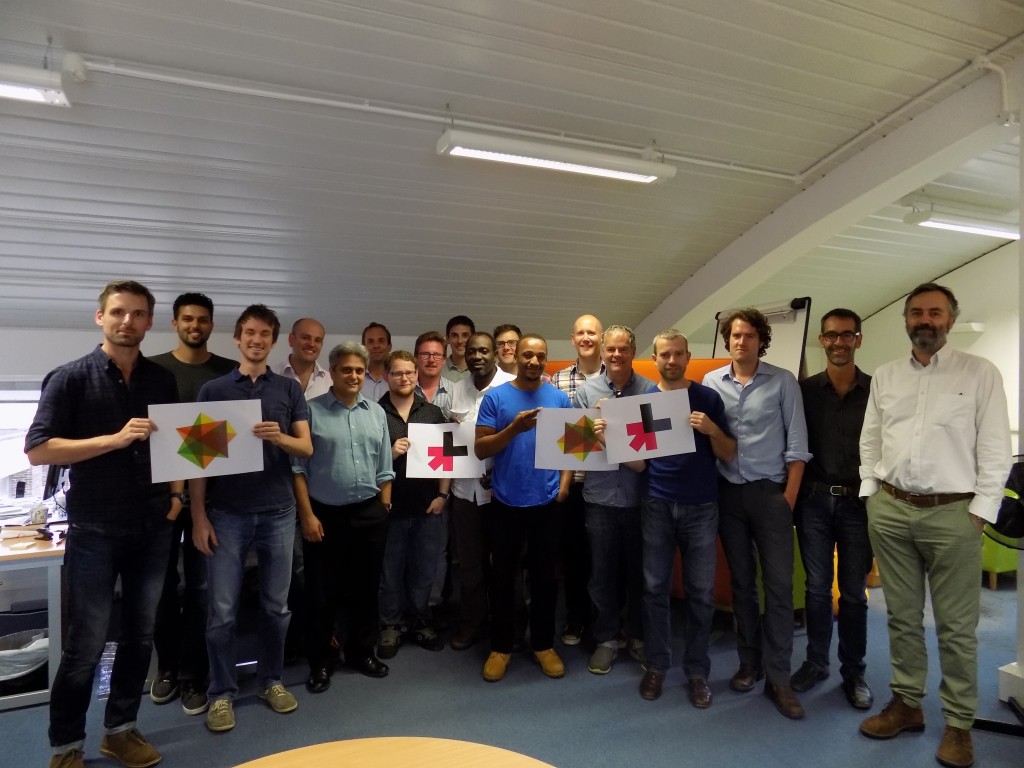It is with enormous pleasure that I am able to announce Itad’s affiliation to the global HeforShe campaign, which seeks to mobilise 1 million men and boys around the work to accelerate the achievement of gender equality.
In the words of UNWomen, the creator of the HeforShe campaign, the “HeForShe journey begins with the affirmation that gender equality is not only a women’s issue, but a human rights issue that requires the participation and commitment of men. “ This seems like a simple conclusion, but one that is often ignored. We are often reminded of this fact in our work in communities, with governments and development organisations. It is often men who hold the reigns of power, who control public fora, determine who is included and who is not, where to invest resources and where not. Without their buy-in and active support any efforts to promote greater gender equality are severely hindered. We know that gender equality has important developmental gains. As stated in the World Development Report 2012, it can enhance productivity, improve development outcomes for the next generation, and make institutions more representative. Why then would we want to overlook the role men and boys can play in promoting gender equality?

Itad’s mission is to deliver Results in Development. As providers of monitoring and evaluation services we are well placed to ensure gender concerns are integrated into project activity through the results framework, to track progress in achieving gender targets and to assist in modifying implementation strategies to enhance projects’ gender achievements. Our evaluation work provides the opportunity to not only understand how different social groups – men, women, boys and girls – have benefitted, or not, from an intervention but also to draw out learning on effective approaches to promoting gender equality, which can be used in future programming and policy-making.
Itad’s commitment to HeforShe is therefore a commitment to ensuring attention to gender issues is integrated across our monitoring and evaluation work. It is a commitment to work with project implementers and policy-makers to ensure the best possible results for women and girls are achieved.
Whilst focusing attention on gender issues is not new to Itad, the consistency with which we will now focus on these issues represents an important shift. It is though very much in line with the evolving nature of our work on gender over the years. Initially, in our early work, gender was treated as one of a number of cross-cutting issues with women sometimes identified as a specific target group. Since 2007, when we undertook an evaluation of UNICEF’s Gender Policy, our work to promote gender equality has increased significantly. We have built up a profile for undertaking gender policy evaluations – just in the last year we have undertaken a high profile evaluation of the European Union’s efforts under its Gender Action Plan and a review of the UK Department for International Development’s Strategic Vision for Girls and Women. We have got involved in in some cutting-edge gender assignments – measuring changes in social norms around gender roles in DFID’s Voices for Change project in Nigeria, assessing the cost benefit of different types of interventions which aim to empower adolescent girls in DFID’s Adolescent Girls Initiative in Kenya, and evaluating the unique Girl Hub, a strategic partnership between the UK Department for International Development and the Nike Foundation to empower adolescent girls. In addition to these gender specific assignments, we have also seen a focus on gender spread across Itad’s work, moving from thematic areas typically associated with gender like health and social protection into other thematic areas such as private sector development, conflict resolution and peace-building.
Of course, to realise our HeforShe commitment we need to look internally and consider what will enable us to take our gender work through this next evolution. We recognise that this is not just about equipping all our consultants to confidently work on gender issues within their thematic areas of expertise. It is just as much about getting our own internal systems and operations right, ensuring that they too actively promote gender equality. For this reason, we have decided to conduct an organisational review to identify those areas of our operations which need strengthening to better promote gender equality and all of our teams will be tasked with developing roadmaps to address the needs identified. It is implementation of these that will result in greater attention to gender equality both within Itad and in our work with partners.
We are very excited by this new phase of our gender work. There is much work to be done but we are confident that our efforts will achieve better results for development, and better results for women and girls. We will share some of the learning emerging from our project work and our efforts to strengthen Itad’s internal gender credentials so do keep checking our website for news.

